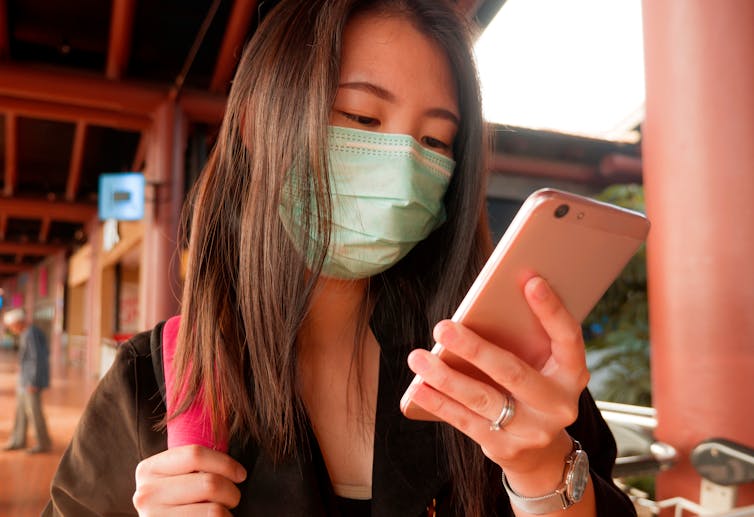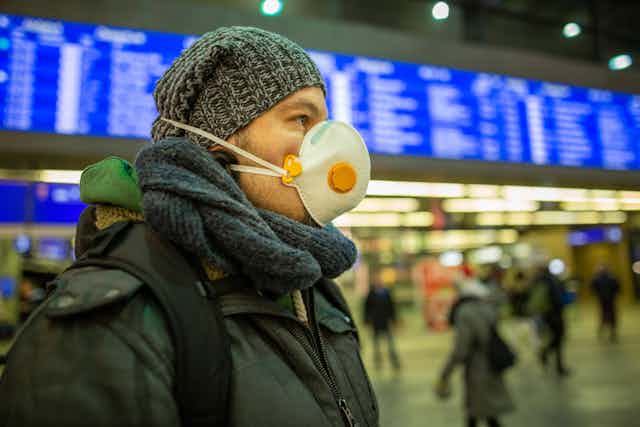As the coronavirus proliferates on a global scale, worry and panic is on the rise. And it is no wonder when we are constantly being told how to best protect ourselves from being infected. But how do you stay safe in this climate and simultaneously make sure that the fear doesn’t take over your life, developing into obsessive compulsive disorder or panic?
Fear is a normal, necessary evolutionary response to threat – ultimately designed to keep us safe. Whether the threat is emotional, social or physical, this response is dependent on a complex interaction between our primitive “animal brain” (the limbic system) and our sophisticated cognitive brain (the neo-cortex). These work busily in concert to assess and respond to threats to survival.
Once a threat has been identified, a “fight or flight” response can be triggered. This is the body’s biological response to fear and involves flooding us with adrenaline in a bid to ensure that we are able to escape or defeat any threat, such as a dangerous animal attacking. The response produces a range of intense physical symptoms – palpitations, perspiration, dizziness and difficulty breathing – which are designed to make us run faster and fight harder.
However, this system can be prone to glitches, sometimes responding disproportionately to threats that aren’t actually that serious or imminent. Worrying about health conditions such as heart attacks, stroke and even COVID-19 (the disease caused by the coronavirus) can therefore also trigger a fight-or-flight response.
That’s despite the fact that there is no role for a primitive biological response to COVID-19 – no running or fighting is necessary. Instead, it is our high-level, cognitive neocortex that is required here, a rational and measured approach to infectious disease, without the messy complications of panic.
Sadly, this is easier said than done. Once the fear has kicked in, it can be hard to stop it.
Vulnerable groups
It is highly unlikely that a viral outbreak, even at pandemic levels, will trigger mental health problems in people who don’t already have them or are in the process of developing them. Research shows that most mental health problems start between early adolescence and the mid-20s, with complex factors being involved. Around 10% of the global population experience clinical levels of anxiety at any one time, although some estimates are higher.
People who are chronically and physically unwell – the ones who are the most vulnerable to the coronavirus – are at particular risk of spiralling anxiety. This should not be ignored. Their concern is warranted and is vital in motivating them to take up precautionary measures. But it is important that these individuals have the support they need in dealing with their emotions.
People with health anxiety, preoccupied with health-related information or physical symptoms, are also at risk of worsening mental health as the virus spreads. So are individuals who are prone to frequent or increased “checking”, such as constantly making sure that the oven is off or that the front door is locked. Those at the extreme end of the scale when it comes to such behaviour may be displaying signs of obsessive compulsive disorder.
People who have a lot of background anxiety, and are not easily reassured, may also benefit from assessment and support in the shadow of the coronavirus outbreak. This may include people with generalised anxiety disorder or panic disorder, which have strong physiological features.
Ways to manage the stress
If you find yourself excessively worrying about the coronavirus, this doesn’t necessarily mean that you have a psychological disorder. But high levels of emotional distress, whatever the source, should be appropriately and compassionately attended to, particularly if it is interfering with normal day to day activities.
At times of stress and anxiety, we are often prone to using strategies that are designed to help but prove counter-productive. For example, you may Google symptoms to try to calm yourself down, even though it is unlikely to ever make you feel better. When our strategies for de-stressing instead increase our anxiety, it is time to take a step back and ask if there is anything more helpful we can do.

There are actually ways to dampen down the physical and emotional symptoms associated with anxiety. One is to stop checking. For example, avoid looking for signs of illness. You are likely to find unfamiliar physical sensations that are harmless but make you feel anxious. Normal physical changes and sensations pass in time, so if you feel your chest tighten, shift your focus onto pleasurable activities and adopt “watchful waiting” in the meantime.
In the case of COVID-19, checking may also include constant monitoring of news updates and social media feeds, which significantly increases anxiety – only serving to reassure us momentarily, if at all. So if you are feeling anxious, consider tuning off automatic notifications and updates on COVID-19.
Instead, do less frequent checks of reliable, impartial sources of information updates on COVID-19. This might include national health websites rather than alarmist news or social media feeds that exacerbate worry unnecessarily. Information can be reassuring if it is rooted in facts. It is often the intolerance of uncertainty that perpetuates anxiety rather than fear of illness itself.
At times of stress and anxiety, hyperventilation and shallow breathing is common. Purposeful, regular breathing can therefore work to reset the fight or flight response and prevent the onset of panic and the unpleasant physical symptoms associated with anxiety. This is also true for exercise, which can help reduce the excess adrenaline build-up associated with anxiety. It can also give much needed perspective.
Perhaps most importantly, don’t isolate yourself. Personal relationships are crucial in maintaining perspective, elevating mood and allowing distraction away from concerns that trouble us. Even in imposed isolation, it is important to combat loneliness and keep talking – for example, via video chats.
We are globally united in living with a very real yet uncertain health threat. Vigilance and precautionary measures are essential. But psychological distress and widespread panic does not have to be part of this experience. Continuing normal daily activities, maintaining perspective and reducing unnecessary stress is key to psychological survival. In other words, where possible, keep calm and carry on.
If you continue to feel anxious or distressed despite trying these techniques, do talk to your GP or refer to a psychologist for evidence-based treatment such as cognitive behavioural therapy.

